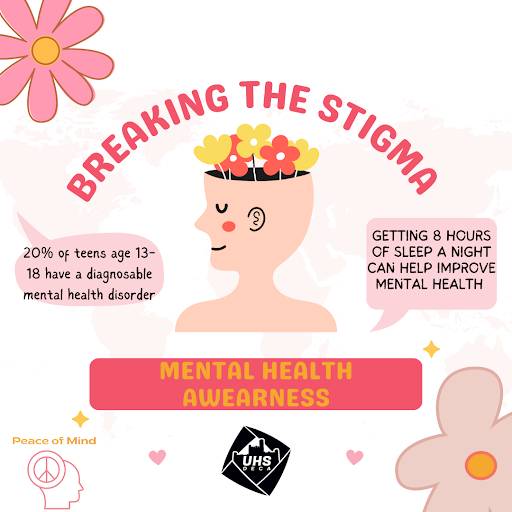Breaking the Stigma Around Mental Health in Teens
Mental health struggles in teens are more common than ever, yet stigma continues to silence discussions, preventing many from seeking help. Breaking this stigma is critical for promoting awareness, understanding, and support. Let’s explore the challenges teens face, why stigma persists, and actionable ways to foster a more compassionate environment.
The Reality of Teen Mental Health
One in five teens faces a mental health challenge, such as anxiety, depression, or eating disorders. These issues can impact every aspect of their lives, including academics, relationships, and self-esteem. Yet, nearly half of those struggling do not seek the care they need due to shame, fear, or lack of resources.
What is Stigma?
Stigma refers to negative stereotypes and judgments about mental health. It creates a divide between "us" and "them," perpetuating harmful ideas like:
- Mental health struggles are signs of weakness.
- People with mental illnesses are dangerous or incompetent.
- Seeking therapy or medication is unnecessary or shameful.
Such misconceptions can lead to self-stigma, where teens internalize these beliefs, thinking they are broken or unworthy of help.
Why Stigma Persists Among Teens
1. Cultural Expectations and Misunderstandings
- Many communities still view mental health issues as taboo or a sign of personal failure. Teens often feel pressured to appear “strong†or “normal,†especially in competitive environments.
2. Social Media's Role
- Social platforms can amplify insecurities. Highlight reels of seemingly perfect lives and exposure to harmful content create unrealistic expectations and deepen feelings of isolation.
3. Media Portrayals
- Movies and TV shows often depict people with mental illnesses as violent, lazy, or unreliable. These stereotypes reinforce negative attitudes and discourage open conversations.
How Stigma Hurts Teens
Stigma prevents teens from seeking help, leading to worsening symptoms and long-term consequences. It can also result in:
- Increased rates of self-harm and suicide.
- A cycle of negative coping mechanisms, such as substance abuse.
- Poor academic performance and strained relationships.
Steps to Break the Stigma
1. Foster Open Conversations
- Encourage teens to share their feelings without judgment. Use inclusive language like “mental health†instead of “mental illness†to reduce fear and stigma. Parents, teachers, and peers play key roles in normalizing these discussions.
2. Educate and Raise Awareness
- Misinformation fuels stigma. Educating teens about mental health conditions can dispel myths. Highlight stories of resilience and recovery to show that help is effective and available.
3. Peer Support Programs
- Creating spaces where teens can connect and share experiences is crucial. Peer-led initiatives, like school mental health clubs, provide validation and a sense of belonging, helping to reduce shame.
4. Promote Mental Health Resources
- Ensure teens know where and how to access help. Schools can host workshops or fairs to share information about therapy, hotlines, and community resources.
5. Encourage Storytelling
- Sharing personal experiences can break down barriers and foster empathy. Programs that empower teens to tell their stories help others see mental health as part of human experience, not something to fear.
The Role of Society
Breaking stigma is not just a task for teens—it requires a societal shift. Families, schools, healthcare providers, and media must prioritize mental health. Initiatives like incorporating mental health education into school curriculums and showcasing diverse, compassionate portrayals of mental health in media can have a lasting impact.
Final Thoughts
Addressing the stigma around teen mental health is vital for building a healthier, more inclusive future. By fostering understanding and support, we can empower teens to seek help and thrive. Let’s commit to listening, learning, and leading with compassion—because mental health matters for everyone.


